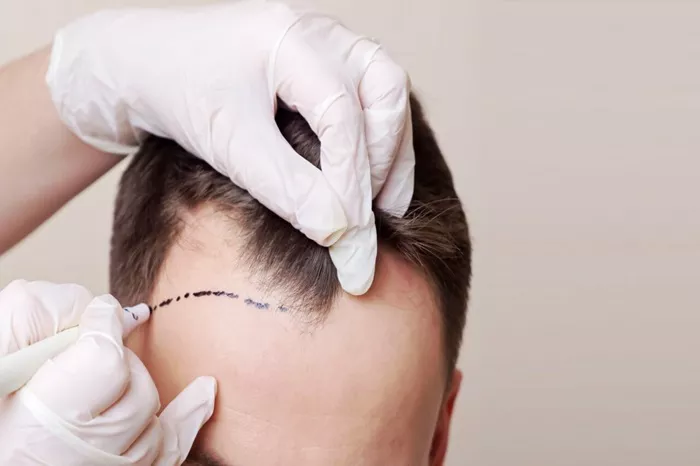Hair transplants are an increasingly popular solution for those experiencing hair loss. However, newly transplanted hair can sometimes feel coarse or stiff. Here, we provide detailed steps and tips to soften transplanted hair, ensuring a natural and comfortable feel.
Understanding Transplanted Hair
What is transplanted hair?
Transplanted hair is hair that has been moved from one part of the body (usually the back or sides of the head) to another part where hair is thinning or balding.
Why does transplanted hair feel coarse?
Transplanted hair may initially feel coarse due to the surgical procedure, differences in hair texture between donor and recipient sites, and the healing process. The new environment can cause the hair to adapt and change texture.
The Importance of a Healthy Scalp
Keeping the scalp healthy
A healthy scalp is crucial for softening transplanted hair. Proper scalp care promotes better hair growth and texture.
How to maintain a healthy scalp
Cleanse regularly: Use a mild, sulfate-free shampoo to keep the scalp clean.
Moisturize: Apply a gentle conditioner or scalp moisturizer to prevent dryness.
Avoid harsh chemicals: Refrain from using products with alcohol or strong fragrances.
Gentle Hair Care Practices
Washing transplanted hair
Use lukewarm water: Hot water can strip natural oils, making hair feel drier and coarser.
Mild shampoos: Choose shampoos formulated for sensitive or transplanted hair. Avoid sulfates and parabens.
Conditioning transplanted hair
Deep conditioning treatments: Use a deep conditioner once a week to provide extra moisture.
Leave-in conditioners: These can help maintain softness throughout the day.
Natural Oils and Their Benefits
Using natural oils
Natural oils are excellent for softening hair. They provide moisture, nutrients, and protection.
Popular oils for transplanted hair
Argan oil: Rich in fatty acids and vitamin E, it softens and strengthens hair.
Coconut oil: Penetrates the hair shaft to provide deep conditioning.
Olive oil: Adds shine and smoothness to the hair.
Jojoba oil: Mimics natural scalp oils, providing hydration without heaviness.
SEE ALSO: What Are the Worst Things to Do After Hair Transplant?
Dietary Considerations
Nutrition and hair health
A balanced diet plays a vital role in hair texture and health.
Key nutrients for soft hair
Proteins: Essential for hair structure. Include lean meats, beans, and nuts.
Vitamins: Vitamins A, C, and E promote scalp health and hair growth.
Minerals: Zinc and iron are crucial for maintaining healthy hair.
Hydration
Importance of hydration
Adequate hydration keeps hair and scalp moisturized from within.
Tips for staying hydrated
Drink water: Aim for at least 8 glasses a day.
Moisture-rich foods: Include fruits and vegetables with high water content, such as cucumbers, oranges, and watermelon.
Avoiding Heat and Chemical Damage
Heat styling
Limit use of heat tools: Reduce the use of hairdryers, straighteners, and curling irons.
Use heat protectants: Always apply a heat protectant spray before styling.
Chemical treatments
Avoid harsh chemicals: Stay away from bleaching, perming, or excessive coloring.
Opt for natural products: Choose hair care products with natural ingredients.
Regular Trims
Importance of regular trims
Trimming helps remove split ends and promotes healthier, softer hair growth.
How often to trim
Every 6-8 weeks: Regular trims keep hair looking fresh and feeling soft.
Scalp Massages
Benefits of scalp massages
Scalp massages stimulate blood circulation, promoting healthy hair growth and texture.
How to perform a scalp massage
Use fingertips: Gently massage the scalp in circular motions.
Incorporate oils: Apply a small amount of natural oil to enhance the massage.
Protective Hairstyles
Choosing protective hairstyles
Protective hairstyles reduce hair breakage and maintain softness.
Examples of protective hairstyles
Loose braids: Prevent tangling and stress on hair.
Buns and updos: Keep hair secure without tight pulling.
Satin scarves and pillowcases: Reduce friction and prevent hair from becoming rough.
Post-Transplant Care Routine
Establishing a routine
A consistent hair care routine is essential for softening transplanted hair.
Daily care
Gentle cleansing: Use a mild shampoo every other day or as needed.
Conditioning: Apply a leave-in conditioner to keep hair hydrated.
Protect from sun: Wear hats or use UV protection sprays to shield hair from sun damage.
Weekly care
Deep conditioning: Treat hair with a deep conditioner once a week.
Scalp exfoliation: Gently exfoliate the scalp to remove dead skin cells and promote healthy hair growth.
Patient Patience and Expectations
Realistic expectations
Transplanted hair may take several months to a year to fully soften and blend with natural hair.
Patience is key
Gradual process: Hair softening is a gradual process that requires consistent care.
Follow professional advice: Adhere to the recommendations provided by your hair transplant surgeon or dermatologist.
Consulting with Professionals
When to seek professional help
If you experience issues with transplanted hair, such as excessive dryness or irritation, consult a professional.
Professional treatments
PRP therapy: Platelet-rich plasma (PRP) therapy can enhance hair growth and texture.
Laser therapy: Low-level laser therapy (LLLT) promotes healthier and softer hair growth.
Conclusion
Softening transplanted hair involves a combination of proper scalp care, gentle hair care practices, natural oils, and a balanced diet. By following these steps and maintaining a consistent hair care routine, you can achieve soft, healthy, and natural-looking transplanted hair. Patience and professional guidance are also crucial for the best results. Remember, every individual’s hair is unique, so it may take time to find the perfect routine that works for you.

